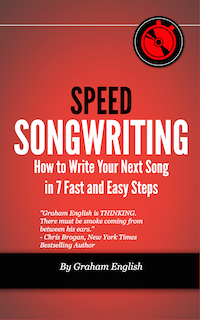
There’s a reason songwriting formulas exist: they work. Until they don’t.
If you want to write songs that fit neatly into a genre and have a shot at commercial success, formulas are your best friend. Verse, chorus, verse, chorus, bridge, chorus. Simple, effective, time-tested.
But if you want to write songs that stand out? Songs that move people? Songs that don’t sound like they came off an assembly line?
You have to know when to break the rules.
Here’s when to follow the formula and when to toss it out the window.
The Power of Songwriting Formulas
Formulas are shortcuts. They help songwriters structure ideas quickly and efficiently. Think of them like the frame of a house—they give you a solid foundation, so you’re not reinventing the wheel every time you write a song.
Most hit songs follow some version of the same structure: an intro to grab attention, verses that tell a story, a chorus that delivers the main hook, and a bridge that offers contrast before one final chorus.
Why? Because it works. People are conditioned to expect it. Deviate too much, and listeners get lost.
If you’re just starting, lean on these structures. Get comfortable with them. Write 10 songs using the formula. Then, write 10 more. Master the basics before you start breaking them.
When Formulas Fail: The Danger of Predictability
The problem with formulas? They can make your songs sound generic.
If every song follows the same structure, uses the same chord progressions, and hits the same lyrical beats, listeners tune out. They’ve heard it all before.
Pop music thrives on familiarity, but it also needs a twist. That’s why some of the biggest hits introduce unexpected elements. A surprise chord change. A sudden drop in instrumentation. A hook that defies expectations.
Listen to Billie Eilish’s "Bad Guy." It doesn’t follow a typical pop structure. Instead of building up to a big chorus, it strips everything back. The real climax of the song? The bass-heavy outro. It works because it’s unexpected.
How to Break the Rules Without Losing Your Audience
Breaking the rules for the sake of it isn’t innovation—it’s just chaos. The key is knowing which rules to break and when.
Here are three smart ways to bend the formula without breaking your song:
- Play With Structure – Instead of a traditional verse-chorus format, try starting with the hook. Or repeat a pre-chorus twice before hitting the chorus. Listen to Lorde’s "Royals." It has no traditional chorus—just a repeating hook.
- Subvert Expectations – If your song is predictable, throw in a curveball. Change time signatures mid-song, like Radiohead’s "Paranoid Android." Use an unconventional chord progression, like The Beatles’ "Something."
- Use Silence as a Hook – The absence of sound can be as powerful as the presence of it. Listen to how Gotye’s "Somebody That I Used to Know" uses empty space to build tension.
The Formula-Breaking Template
Want to shake things up but not sure how? Here’s a simple way to start:
- Write your song using a standard structure (verse, chorus, verse, chorus, bridge, chorus).
- Identify one element to disrupt—maybe the chorus drops out the first time, or the bridge never resolves.
- Test it. Play it for someone and see if they lean in or tune out.
- Adjust accordingly.
Breaking formulas works best when it serves the song. It should make the music more engaging, not just weird for weird’s sake.
When NOT to Break the Rules
Some rules exist for a reason. If you’re writing a song for sync licensing (TV, film, commercials), breaking structure can hurt you—producers and supervisors want predictable forms.
If you’re writing for radio, remember that songs under three minutes tend to perform better. If your song is too long or too experimental, you may struggle to get airplay.
When in doubt, ask yourself: Is this making the song better? If not, keep it simple.
Final Thoughts
Songwriting formulas are tools, not cages. They help you craft solid, listenable songs, but they don’t guarantee originality.
Learn the rules. Use them. Then, when you’re ready, start bending them.
That’s how you write songs that don’t just sound good—they sound unforgettable.

Enter your first name and email address below and click “GET ACCESS NOW!” to get the Speed Songwriting Cheat Sheet delivered to your inbox!
We guarantee 100% privacy. Your information will not be shared.

Leave a Reply